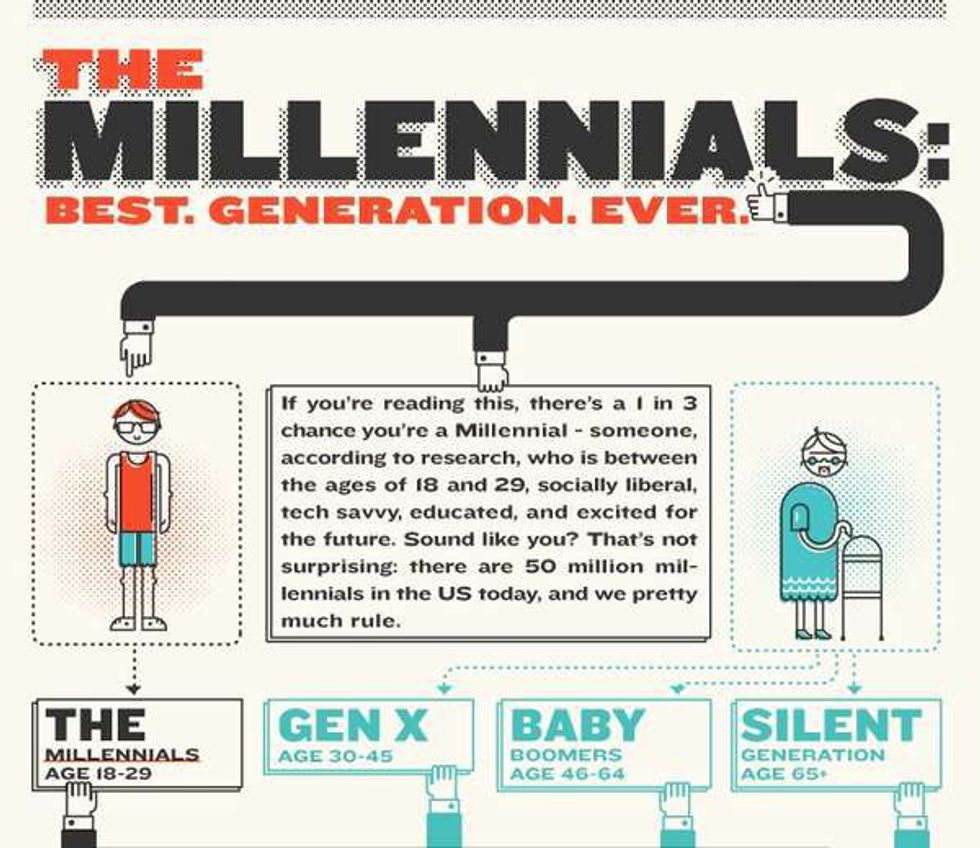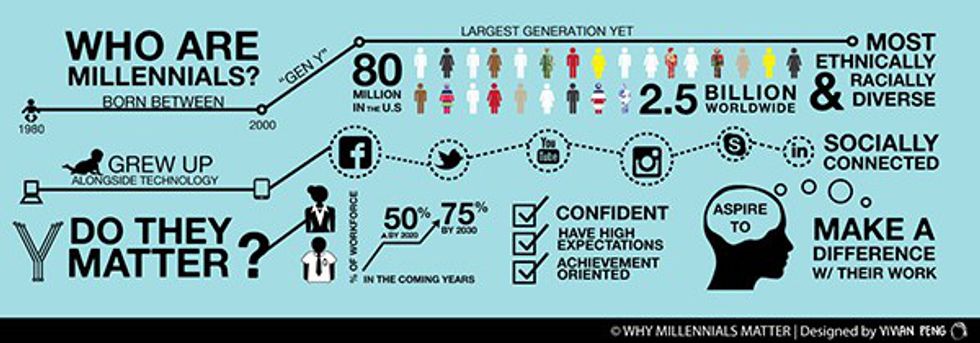The ME generation aka the Millenial Generation. Always talked about, always discussed, always argued by the preceding generations and current political pundits alike. There are many different opinions and thoughts about what this generation aims to achieve and what their desires are. They are called lazy, narcissistic, un-inspired and entitled. Grandma and grandpa compare them to sponges and mom and pop compare them to being the equivalent of a towel – absorbing the grueling hard work they have put together for them.
It is easy to have this perception for this generation, but having worked in several organizations over the last few years out of university and witnessing the current attitudes of the millenials (I, myself, being one) first-hand - there is a definite miscommunication and misunderstanding of what the main priorities for this generation's desires are and that of management. It is important for organizations to understand because this generation now makes up the majority of the workforce.
The truth of the matter is that modern organizational practices have not been around that long. They really began in the 1980s having being founded by the baby boomer generation. Each generation had their cause to fight for and their main priorities for the betterment of the world. Now that Millennial constitute the majority of the workforce, it is vital for organizations to adapt to their current sentiments and how they see the world.
5 factors that management of organizations should be aware of:
- Respect. Millenials want to know that their voice is heard instead of giving empty lip-service with empty promises and incredibly “corporate/PR” responses.
- Connection. Believe it or not, in a day and age where technology dominates our lives with social media and “fake” friendships/connections are made on Facebook. When it comes to work, they care a lot about feeling a part of the team. Not just any team, but a cohesive team with multiple players working together to achieve a common goal. It delivers significance & meaning on a day-to-day basis. This goes hand-in-hand with current workers creating activities with their coworkers, blurring personal and professional lives.
- Cultures. This goes without saying. They watched their parents go through countless bureaucratic organizations just to provide a sustainable living with terrible and disrespectable management. For what? Remember, 2008 is still very fresh in their minds. Having a positive work environment is CRITICAL for this generation. Ask Silicon Valley as to how they have been able to steal the top talent in the nation vs. Wall Street over the last decade. They will tell you. Zero toleration for negative work cultures.
- Project Based Experience vs. “Resume” Experiences. This will be the most talked about aspect for this generation once the statistics are finalized. Long gone are the days where individuals stay with their firms for decades, a decade, even 5 years blindly. Again thank 2008 for that. It is just reality. The more projects with an ‘end goal’ that is laid out for millennials, the better. Projects help improve skills and now more than ever, with competition being so high, improving and gaining new skills have become the utmost priority.
- Flatter Organizations. Bureaucracy stifles creativity and innovation. It is an easy concept to grasp. The idea of a startup culture is more prevalent and romanticized today and while not every millennial will work for a "startup" - that culture and those 'Silicon Valley' companies have an idea that is appealing. No one wants to feel like they are just a number or employee #5467. The importance of value and appreciation is key and in turn, helps an organization grow. How? Having approachable access to upper management helps foster strategy, progression, minimize work place conflicts thus leading to positive returns in the bottom line.
Keep these in mind as your organization works to promote, hire and retain talent. How has your organization shifted to adopt to current "work" norms?

























